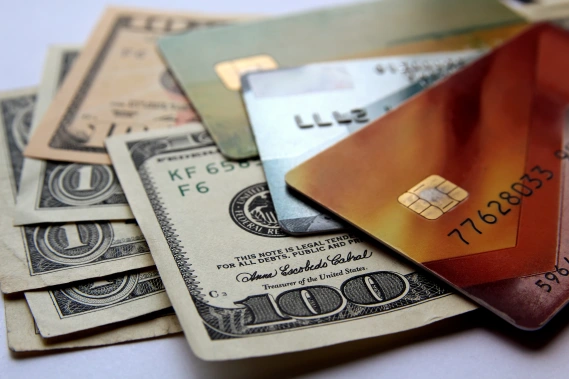Lately, it seems there has been a growing trend in several industries—going cashless. By eliminating the option to pay cash, business owners say their business runs quicker and more efficiently. On the other end of the spectrum, there are many small businesses that are still cash-only. And though it may feel like an old-fashioned business model, sticking with paper is often cheaper and, for some businesses, less of a headache when it comes to accounting.
In most cases, small businesses owners are paid by a mixture of both cash and credit. If you’re an established business who’s always been cash-only, it may be time to consider accepting cards. On the flip side, going totally cashless could be a great choice for your businesses.
Though both methods end in the same result (more money in the bank), there are clear cash vs credit cards pros and cons that are worth considering.
Advantages of cash sales
Immediate access to all funds
Accepting cash means that you have the money made from a purchase immediately. Card transactions often require a short period—usually between 24 hours and two days—between the customer’s purchase and your access to the payment. With cash, you have immediate access to and control of the money you’re making, without having to deal with a third party entity or wait for a transaction to clear.
No cost
With every credit card swipe comes a transaction fee. Depending on the card, these typically range from, 0.5 percent to 5.0 percent on purchases and can quickly add up over time. If you’re just starting out, these fees can feel hard to manage and shrink your profit margins. Plus, don’t forget the cost of the equipment needed to accept credit.
Cons of cash
Security risk
Having immediate access to your capital is a double-edged sword. Keeping a large sum of money on your property may increase the chance of running into trouble down the road. A large amount of cash in your register puts your business at risk for a theft.
Complicated bookkeeping
Sure, only using cash means that you and your accountant or bookkeeper only have to deal with one type of payment method rather than several. However, the trade-off is that it makes keeping track of your expenses a little more complicated when it comes to your accounting. Cash gets lost—and can easily commingle across various types of finances. It also means that there’s no paper trail to follow. This may lead to unnecessary headaches once it’s time to pay taxes.
Pros of credit
Efficiency
If you own a restaurant, coffee shop, or fast-service business, you know how stressful things can get during your peak business hours. Customers want their product fast, and no one likes waiting in line for a customer to count out pennies. Operating as a card-only venue cuts down on service time—simply swipe, sign, and go.
Easier accounting
When you’re paid with credit or debit, you have an automatic record of all purchases which can eliminate the need for a lot of manual record keeping. Plus, without cash, there’s less risk of human error and no time wasted counting drawers or safes at the end of the night.
Cons of credit
Alienating customers
They say cash is king for a reason. Today, a customer expects to use cash basically anywhere and everywhere and may be caught off-guard if they find they can’t. Plus, by not accepting cash, you will alienate some “unbanked” customers or those without access to a bank account. Before you consider going credit-only, it’s a good idea to take a hard look at your prime customer base and whether or not they have access to a credit or debit card.
Online security
Without cash, you eliminate the risk of on-site robberies and theft. But fraud and security breaches are a legitimate worry for business owners. Your and your customer’s records will be online, and accessible in the event that security fails. Plus, there’s the risk of customers submitting fraudulent chargebacks, requiring you to spend time and energy fighting for your money.
There are plenty pros and cons of cash or credit only. Choosing to accept one type of payment method may prove convenient for an extremely small startup business. However, as your business grows, it may be better to consider taking both cash and credit to best serve your customers. It’s up to you, as a small business owner, to decide what works best for your business.
Meredith Wood is the editor-in-chief at Fundera, an online marketplace for small business loans that matches business owners with the best funding providers for their business. Prior to Fundera, Meredith was the CCO at Funding Gates. She is a resident Finance Advisor on American Express OPEN Forum and an avid business writer. Her advice consistently appears on such sites as Yahoo!, Fox Business, Amex OPEN, AllBusiness, and many more.


